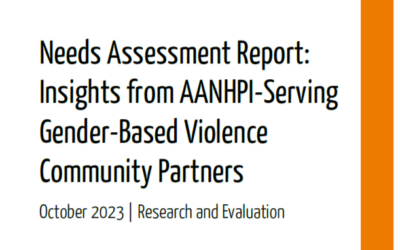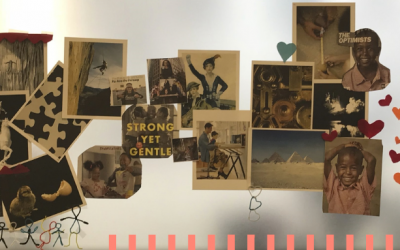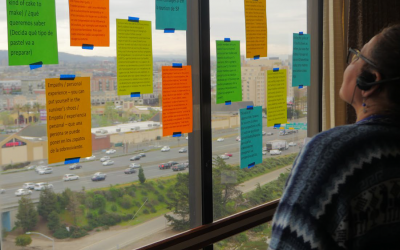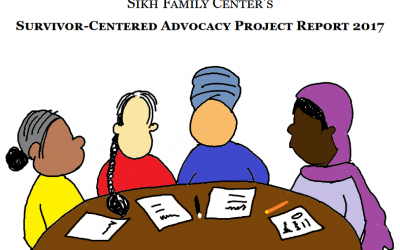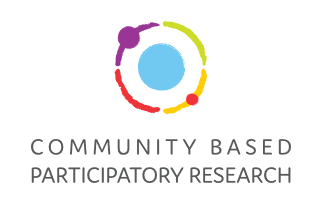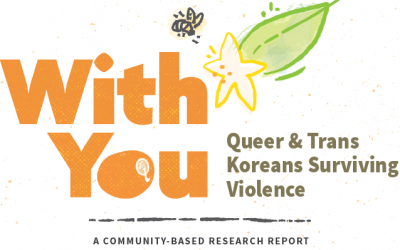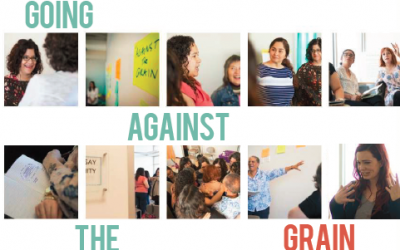This case study discusses the Survivor-Centered Advocacy (SCA) Project, a community-based participatory research (CBPR) project that convened anti-violence advocates from culturally specific communities to design and implement research. The project used a unique approach to build grassroots research capacity and center survivors of intimate partner violence from historically marginalized communities. This approach coalesced into the creation of an exploratory Community-Led Research (CLR) framework that incorporated trauma-informed, research justice and language justice principles. The CLR framework responded to community members’ desire to lead, rather than simply participate in, the research process. As a result, five studies were designed and executed by practitioners turned community-based researchers, most of whom had never before engaged in research, except as subjects. The CLR framework integrated the skills and experiences of community-based and external researchers, and led to high levels of engagement, rich data, more equitable research processes and innovative research projects.
Related Resources
2023 CBO Needs Assessment Report & Summary
This report explores and contextualizes the results from API-GBV's 2023 needs assessment on AANHPI-serving GBV community organizations. The findings support a sustained need for culturally responsive programming and research; specialized training opportunities for...
Innovations in Survivor-Centered Advocacy, 2019
This report describes the next phase of the Survivor-Centered Advocacy Project, supporting four field research teams to translate their findings into practice aimed at transforming the field.
Survivor-Centered Advocacy in Culturally Specific Communities: A Community-Based Participatory Research Project, 2019
The Survivor-Centered Advocacy Project was a California-based research justice project that utilized a community-based participatory research (CBPR) approach. This report illustrates the basic principles of CBPR and makes recommendations for those wishing to do a CBPR project that holds historically marginalized communities at the center; and/or those attempting to align or deepen their practices according to what works for survivors from historically marginalized communities.
Strengthening Our Roots: Listening & Learning from Survivors & Supporters, 2017
By Sikh Family Center
This report, prepared by Sikh Family Center, compiles the qualitative data from 2 focus groups and 3 individual storytelling interviews facilitated by SFC in the Bay Area, California between November 2016 and January 2017. These groups and interviews consisted of survivors of gender-based violence, specifically family violence, as well as community members who regularly work (formally or informally) with survivors of violence.
Power through Partnerships: A CBPR Toolkit for Domestic Violence Researchers
This toolkit is for researchers across disciplines and social locations who are working in academic, policy, community, or practice-based settings. In particular, the toolkit provides support to emerging researchers as they consider whether and how to take a CBPR approach and what it might mean in the context of their professional roles and settings. Domestic violence advocates will also find useful information on the CBPR approach and how it can help answer important questions about your work.
With You: Queer and Trans Koreans Surviving Violence: A Community-Based Research Report, 2018
By the Korean American Coalition to End Domestic Abuse
This report is an effort to document and reflect on the experiences of queer and trans Korean survivors of family or intimate partner violence. It shares key findings of the Queer & Transgender Korean American Survey on Family and Intimate Partner Violence in Our Community, as well as two in-person focus groups.
Going Against the Grain: A Report from a Survivor-Centered Practices Learning Circle, 2017
Ten cutting-edge organizations, including API-GBV, came together in four facilitated learning sessions to reflect on practices that lift-up survivor-centered approaches.
By Susan Ghanbarpour, Ada Palotai, Mimi E. Kim, Aracelia Aguilar, Juana Flores, Amber Hodson, Tara Holcomb, Maria Jimenez, Mallika Kaur, Orchid Pusey, Alvina Rosales, Wendy Schlater & Hyejin Shim
September 2018
